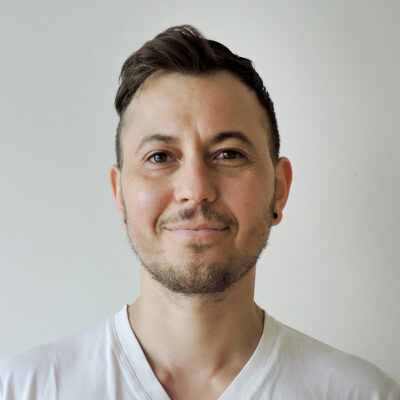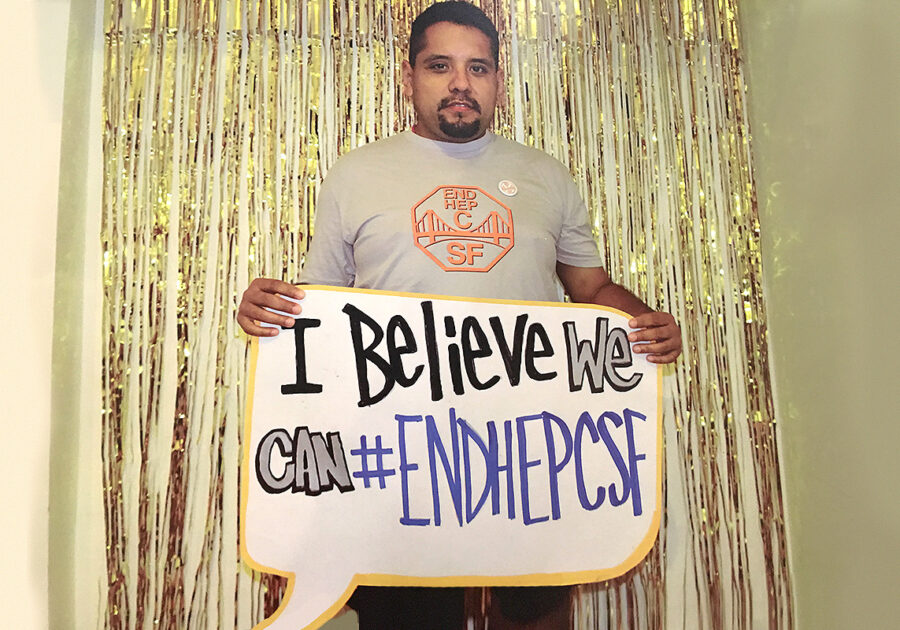
Marion Pellegrini
Clinical Manager
mpellegrini@sfaf.org
Hepatitis C testing and treatment, linkage to care, and other sexual health services are provided by our sexual health clinical program, Magnet. For community members who have a relationship with substances, drop-in testing and clinical services are also provided at our 6th Street Center.
We provide free hepatitis C virus testing, treatment, cure and support for people in our communities–including people who have or currently inject. We strongly believe that everyone living with HCV deserves to know they are HCV-positive and that HCV cure is an option.
Hepatitis C Virus (HCV) Testing
Hepatitis C is a liver infection caused by the hepatitis C virus (HCV). Infection with the virus causes liver inflammation and can cause liver disease.
Hepatitis C is transmitted from contact with infected blood. You can get infected if even a small amount of infected blood gets into your bloodstream. Sharing needles, syringes, or other equipment to inject drugs can transmit HCV. It’s also possible to transmit hepatitis C by sharing toothbrushes, razors, or tattoo and piercing equipment.
Hepatitis C can also be acquired through sex and usually happens during unprotected anal sex. Risk of transmission goes up with any sexual activity that damages the lining of the anus — such as fisting, sex sessions that last a long time or rough sex. Group sex, party drug use before sex and using unwashed sex toys can also put you at risk of hepatitis C if you’re exposed to blood or you have breaks in your skin.
The hepatitis C virus also lives in semen, but whether or not this adds to the risk of transmitting hepatitis C during unprotected anal sex is unknown.
Blood tests are used to diagnose hepatitis C. The first is called an HCV antibody test. This is followed up with a test that confirms the presence of the virus.
If you’ve been diagnosed with hepatitis C, call us discuss your options for treatment at 415-350-2900.
If you’re living with HIV, you should have a hepatitis C test at least once a year. Testing every 6 months is recommended for people who have unprotected anal sex, have had more than 10 sex partners within six months, engaged in group sex, or inject drugs.
Our Hepatitis C Wellness program connects enrolled clients with free onsite treatment and support. This community-based hepatitis support group offers a space for members to take medication, check in with peers, and share their experiences living with hepatitis C.
Unlike hepatitis A and hepatitis B, it is not possible to develop immunity to the hepatitis C virus. You could get re-infected if you come into contact with the virus again.
If you are living with hepatitis C:
If you’re living with hepatitis C & HIV:
Almost everyone living with hepatitis C can now be cured with an 8 to 12 week, once-a-day medication. Newer treatments for hepatitis C are extremely well tolerated with few side effects, and highly effective at clearing the virus.
Some people find complementary therapies and lifestyle changes to be helpful in managing hepatitis C symptoms.
No, you do not need proof of insurance or other documentation to get started.
No, a vaccine for hepatitis C does not exist, but you can reduce your risk of infection.
To find more hepatitis C testing and treatment resources, please visit End Hep C SF.
...I owe my life to the program. All of the staff work really hard to make sure everyone is helped as much as possible.Participant, Hepatitis C Wellness program